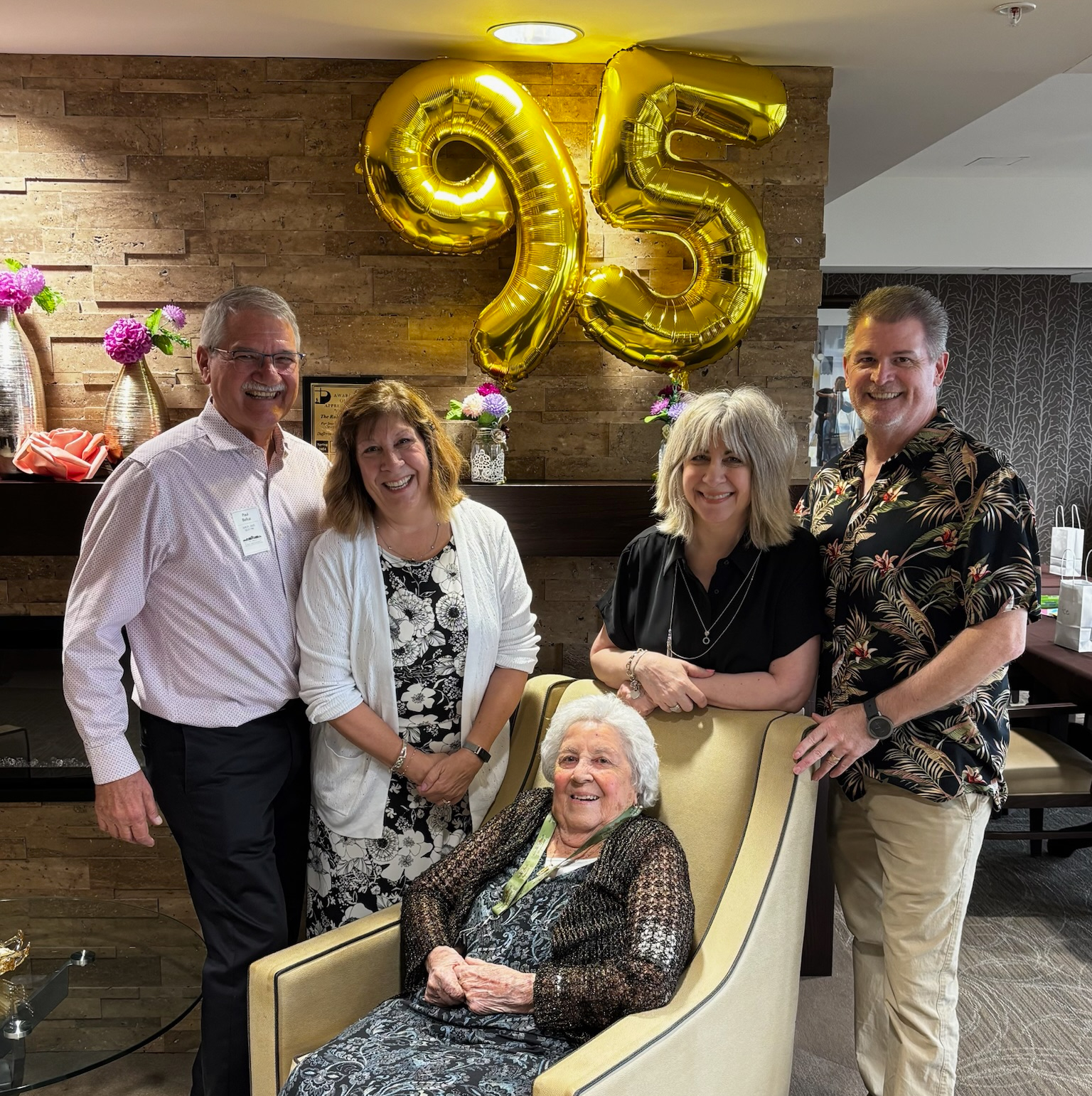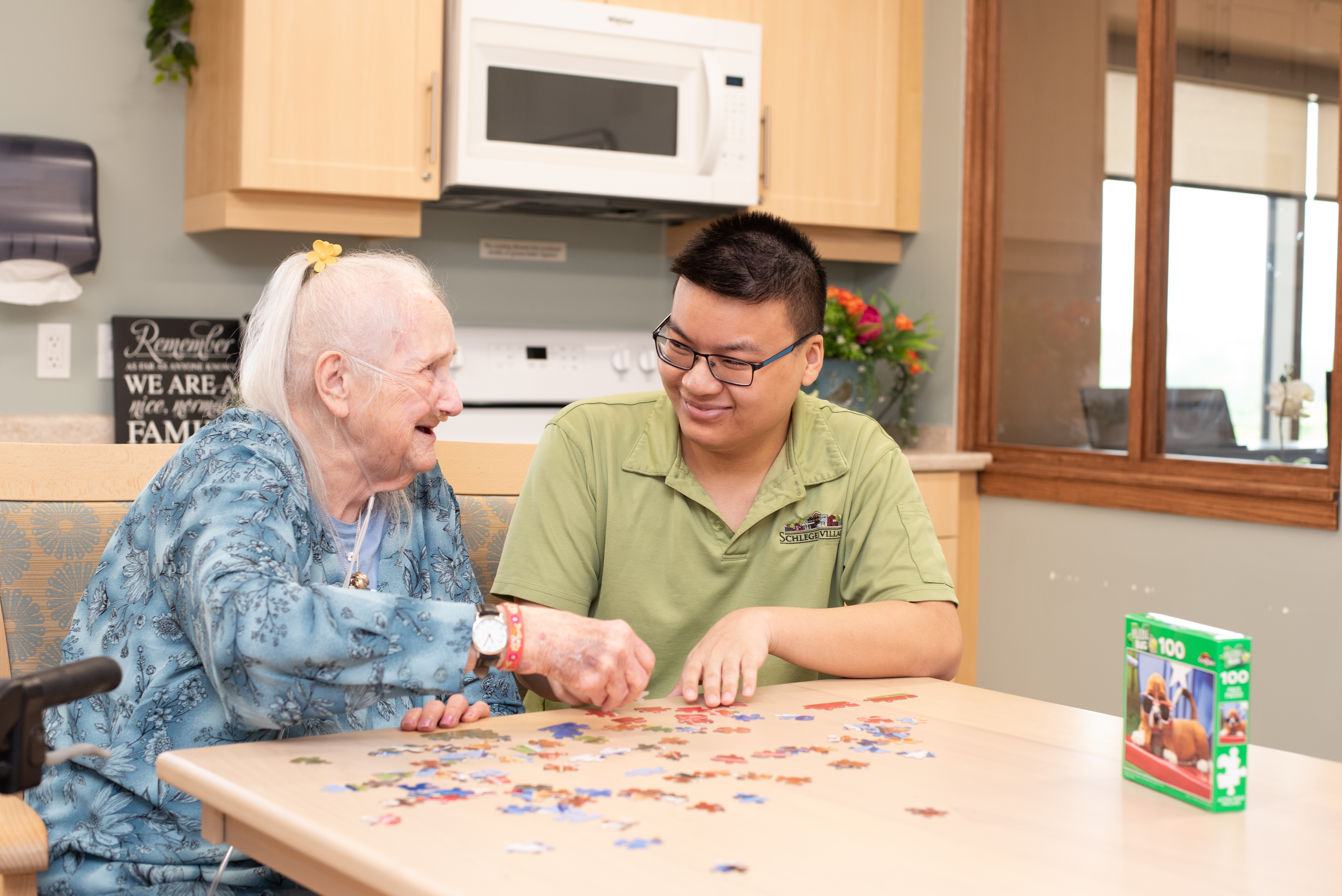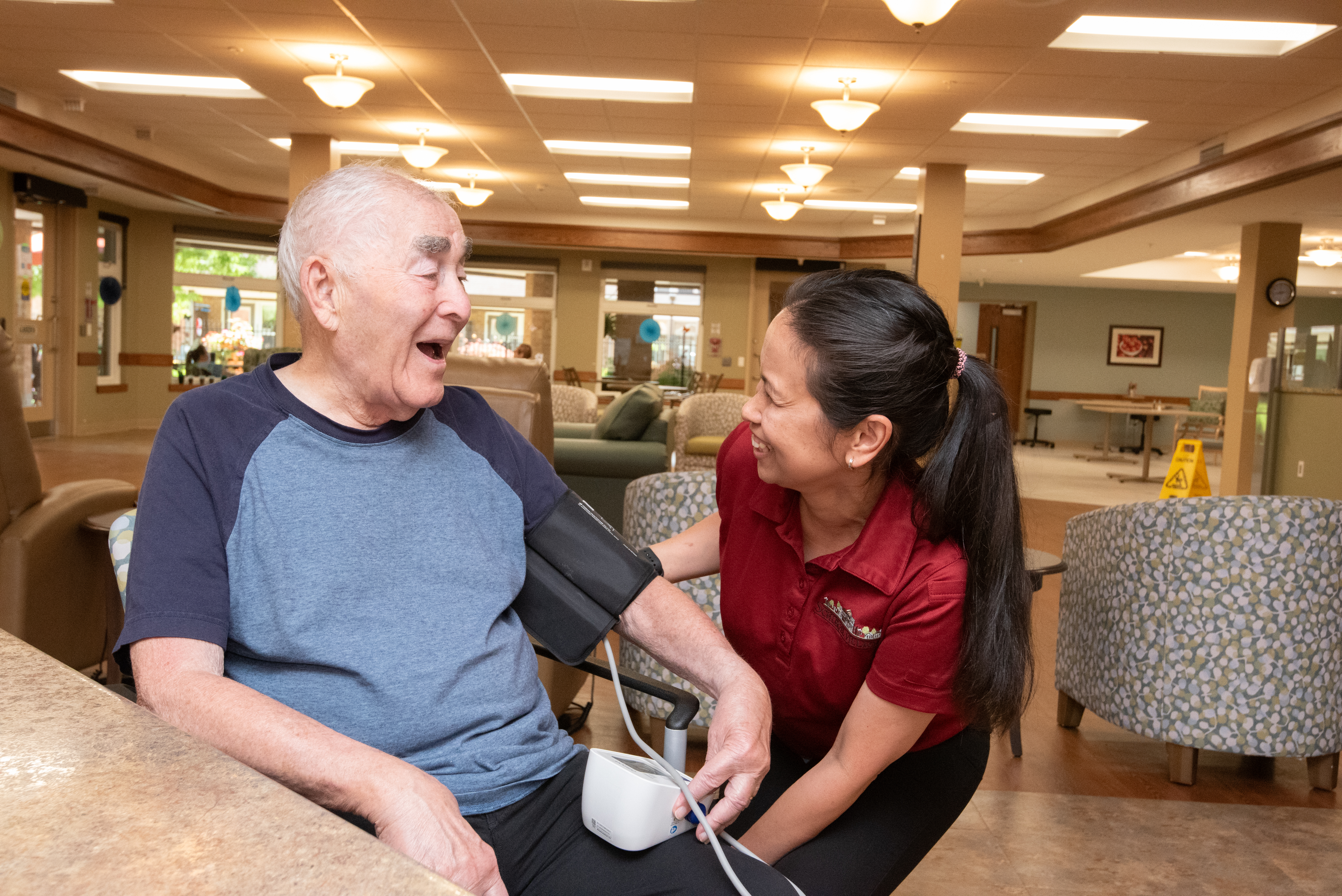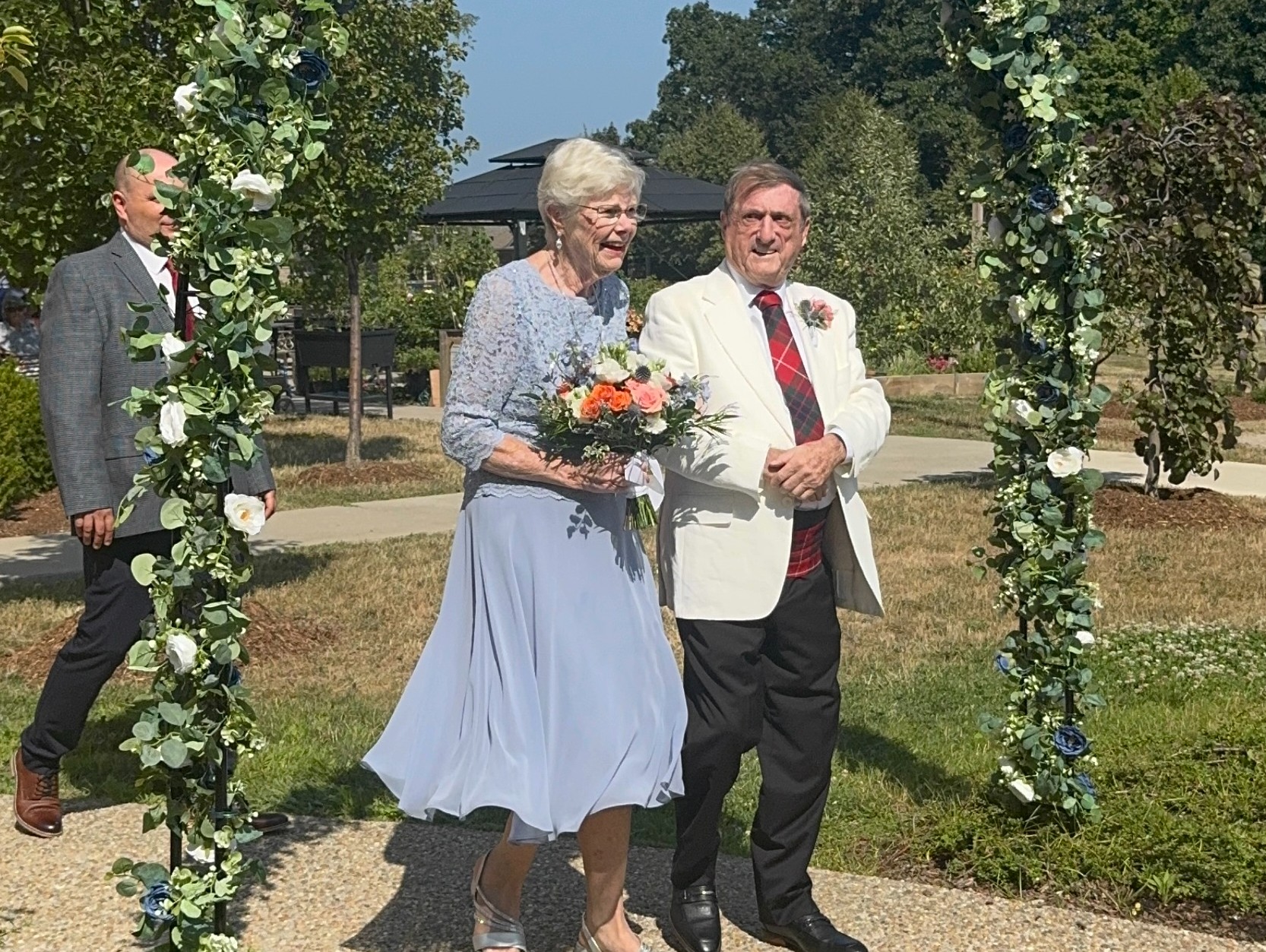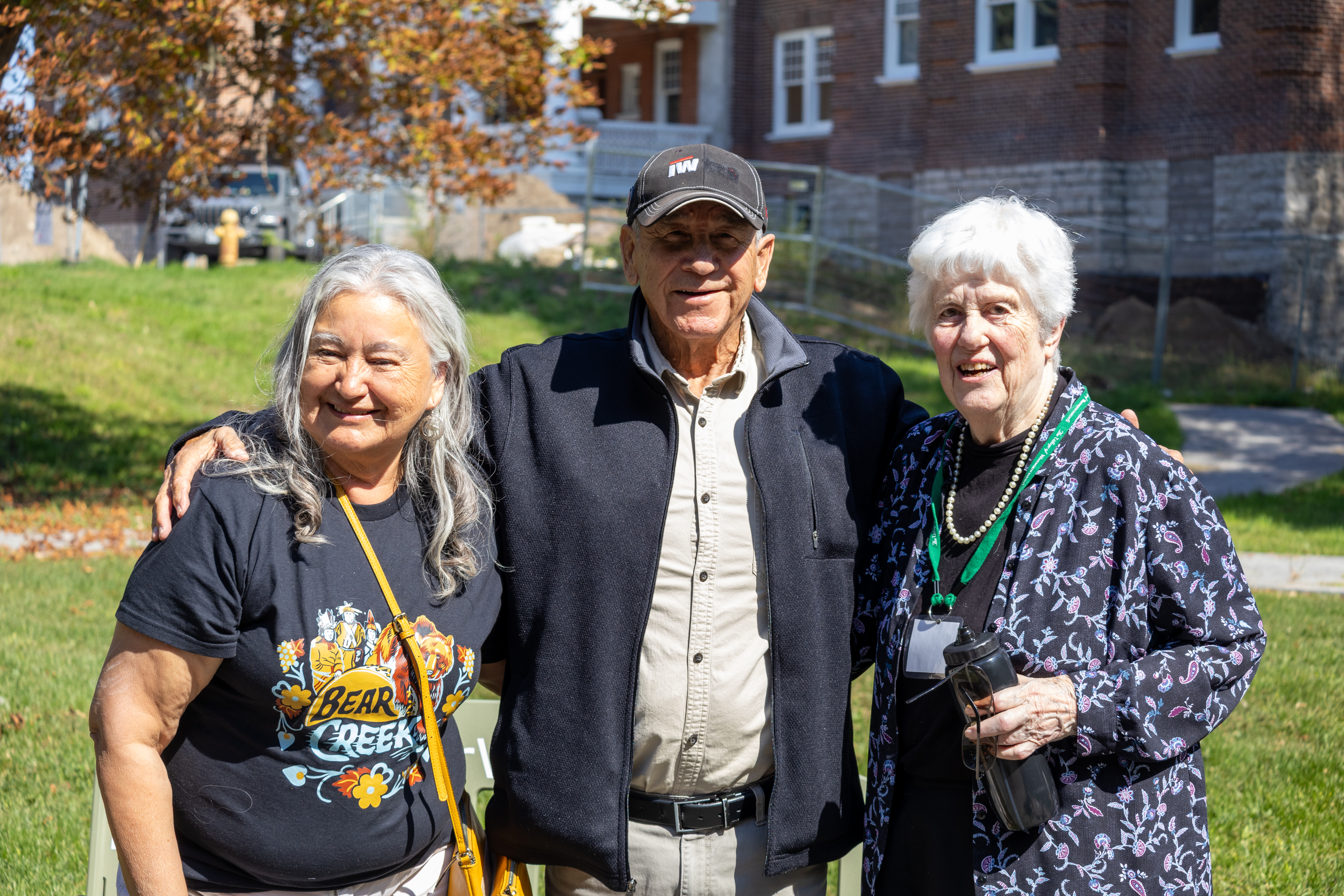For someone living independently, mealtimes are points in the day where personal choice and preference are paramount, yet often taken for granted. They know what they like to eat and when they want to do so and for the most part those decisions guide their approach to meals. Most rarely give it a second thought.

Flexible Dining is something all villages aspire to achieve.
That same autonomy should exist for people moving into a long-term care or retirement setting, including people living with dementia or Alzheimer’s disease, yet mealtimes are often the most difficult times of day to maintain autonomy. Due to changes in the brain, people living with dementia may be slower at making quick decisions, and for care providers with several people to support, time can be a challenge; some may choose to make decisions for the person they’re trying to support to combat their struggle to find time.
In the dining rooms of Schlegel Villages, Flexible Dining is an aspiration that guides progress in both retirement living and long-term care. To provide flexible dining is to put autonomy back at the centre of the mealtime experience for residents, which enhances enjoyment and health outcomes – if someone enjoys their experience, they’re more likely to eat better and their nutritional uptake increases.
Jefferdie Fiesta is the neighbourhood coordinator in Emma’s at Wentworth Heights, and says the flexible approach to dining is now just a way of life for the team and residents. It’s been the normal approach since the neighbourhood opened just over a year ago, where residents can help themselves to drinks and snacks most any time and decide when they’d like to take their meals. Patience, in many respects, is the key to this flexible approach, Jefferdie says, and the result is a group of residents who are much more content where meals are concerned and team members who are less stressed because of it.
“I feel (the team) is really very relaxed when they come into the dining room for mealtimes,” Jefferdie says. “It’s not a routine; it’s just very calm, seems like at home and residents are free to come into the dining room whenever they want and the team is able to assist them.”
Gone are they days when, like clockwork, residents were ushered into their assigned seating at the exact same time for each meal every day. There remains, of course, some structure today, because many people do appreciate that, but it’s tempered with true flexibility. It helps that the team has gone to great lengths to know the residents, Jefferdie says. They know who likes routine and who doesn’t, for example, or who prefers a late breakfast after a sleep-in.
They also know that in a neighbourhood serving people with dementia, patience and flexibility can be the greatest of virtues and a relationship-centred approach to mealtimes can make all the difference.
- Previous
- View All News
- Next
